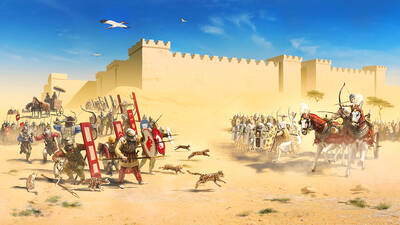On blazing hot summer days, fresh ingredients and cool refreshments straight from a refrigerator feel like nothing short of a miracle. However, chilled foods didn’t begin with modern refrigerators. In fact, the origin of refrigeration precedes the invention of this now-indispensable appliance by centuries.
Initially, the quest for refrigeration was motivated more by the desire to cool beverages than to preserve food. The ancient Greeks and Romans, for instance, used snow stored in insulated pits to chill wine. Around the fourth century BC, the Persians made a significant stride in refrigeration techniques when they devised the yakhchal. Fashioned from thick mud-brick walls, these innovative dome-shaped structures preserved ice and consequently food in a primitive yet effective manner.
It wasn’t until the 17th century that refrigeration took another leap forward with the development of the icehouse. Equipped with a system to drain meltwater, this underground chamber could keep ice frozen for up to 18 months. By the 18th century, icehouses were a prized feature that was part of many wealthy estates and villas in the UK.

Photo: Racool studio / 照片: Racool studio 提供
The popularity of icehouses ushered in a golden age of commercial ice trading in the 19th century. Initiated by American merchant Frederic Tudor in 1806, this lucrative trade demanded extensive labor for the purpose of harvesting, transporting, and selling ice. This industry boomed in North America and Norway in particular. During the peak of the ice trade in the 1890s, Norway exported a staggering 250,000 tons of ice a year.
What followed, however, is hardly a surprise to us now: the introduction of the electric refrigerator in the early 20th century spelled the end of the ice trade. As we rely on the convenience of modern refrigeration today, let’s not forget to appreciate the history of the innovations that came before this marvel of modern life.
在炎炎夏日裡,直接從冰箱拿出的新鮮食材和清涼茶點簡直就彷彿奇蹟。然而,冷藏食物的起點並非現代冰箱。事實上,冷藏的起源比起這項現在不可或缺的家電的發明時間還早了好幾個世紀。
最初,人們對冷藏的追求更多是受到想要冷卻飲料,而不是想要保存食物的動機所驅使。例如,古希臘人和古羅馬人使用存放在隔熱地窖中的雪來冷卻葡萄酒。公元前四世紀左右,波斯人發明了冰塔,在冷藏技術上取得了重大進展。這些創新的圓頂結構體是由厚重的泥磚牆所砌成,以原始但有效的方式保存了冰塊,從而也保存了食物。
直到西元17世紀,隨著冰窖的發展,冷藏技術才再次出現了飛躍。這個配備了融水排放系統的地下室可以將冰塊保持冷凍長達18個月。到了西元18世紀,冰窖成為英國許多富裕莊園和別墅的一大珍貴特點。
冰窖的流行迎來了西元19世紀商業性冰貿易的黃金時代。這項利潤豐厚的貿易由美國商人弗雷德里克.都鐸在西元1806年發起,需要大量勞動力來進行冰塊的採集、運輸和銷售。這個行業在北美和挪威尤為蓬勃發展。在西元1890年代冰貿易的鼎盛時期,挪威每年出口的冰塊就達到驚人的25萬噸。
然而,接下來發生的事情對我們現在來說幾乎不足為奇:隨著西元20世紀初電冰箱的推出,這意味著冰貿易的結束。我們如今在依賴現代冷藏的便利時,也別忘了去欣賞在冰箱這項現代生活奇蹟出現前,就有些創新作為存在的這段歷史。
MORE INFORMATION
refrigeration n. 冷藏
beverage n. 飲料
insulated adj. 隔熱的
Persian n. 波斯人
KEY VOCABULARY
1. blazing adj. 炙熱的;熾烈的
The desert landscape is known for its vast stretches under the blazing sun.
這處沙漠景觀以其在烈日底下廣闊無邊的大片延伸而聞名。
2. refreshment n. 茶點;食物和飲料
Fiona prepared some light refreshments for the picnic, such as salads and sandwiches.
菲奧娜為野餐準備了一些小茶點,例如沙拉和三明治。
3. precede vt. 先於;處於……之前
May saved money throughout the year preceding her dream vacation to Europe.
梅在她去夢想的歐洲度假之前的一整年都在存錢。
4. quest n. 追求;探尋
The main character of the novel goes on a quest for a lost treasure. 小說的主角踏上尋求失落寶藏的旅程。
5. dome n. 圓頂;穹
The roof of the stadium is a huge dome that can be opened. 這座體育場的屋頂是一個可以打開的巨大圓頂。
6. villa n. 別墅
The celebrity owns a luxury villa on a remote tropical island. 這位名人在偏遠的熱帶島嶼上擁有一棟豪華別墅。
7. usher in 迎來;開創(重大變化或新事物)
The invention of the internet ushered in a new era of communication. 網路的發明迎來了通訊的新時代。
8. staggering adj. 令人震驚的
The company grew at a staggering rate, doubling its revenue within months.
該公司以驚人速度成長,在幾個月內使營收翻倍。
9. marvel n. 奇蹟;驚奇的事物
The success of the space mission was a technological marvel.
這項太空任務的成功是科技方面的一次奇蹟。
學習音檔: https://magazine.english4u.net/Magdata/menu/vtnnc
《空中美語》雜誌APP免費下載: https://www.english4u.net/apps/index.aspx
免費收聽當月《空中美語》雜誌課文朗讀及解析 !

A: In addition to “Mission: Impossible 8,” what other new movies are in theaters? B: “Final Destination: Bloodlines” and “The Wedding Banquet” are out. The French film “Jane Austen Wrecked My Life” will also open soon. A: The Final Destination horror movie series is so scary that I don’t dare watch it. B: Then how about “The Wedding Banquet,” which is a 2025 remake of the 1993 classic of the same title? Oscar-winning actress Youn Yuh-jung’s performance in it is highly anticipated. A: But as a fan of British writer Jane Austen, I’m more interested to see how her works

US President Donald Trump on Monday last week signed the TAKE IT DOWN ACT (Tools to Address Known Exploitation by Immobilizing Technological Deepfakes on Websites and Networks Act), bipartisan legislation that enacts stricter penalties for the distribution of non-consensual intimate imagery, sometimes called “revenge porn,” as well as deepfakes created by artificial intelligence. The measure, which goes into effect immediately, was introduced by Sen. Ted Cruz, a Republican from Texas, and Sen. Amy Klobuchar, a Democrat from Minnesota, and later gained the support of First Lady Melania Trump. Critics of the measure, which addresses both real and artificial intelligence-generated imagery, say

Cats ruled in ancient Egypt—and not just in their own minds. These clever, graceful creatures were so deeply respected by the Egyptians that harming one could lead to severe punishment, even death. But why did the Egyptians hold cats in such high regard? It wasn’t just because they were cute; cats played a crucial role in protecting the country’s grain stores from pests. As guardians of Egypt’s food supply, they were seen as sacred animals. The Egyptians honored them through Bastet, the cat-headed goddess of protection, the home and fertility. Egyptians didn’t just love cats; they worshipped them. Cats lived in luxury,

A: Wanna go see a movie during the three-day weekend for the Dragon Boat Festival? B: Sure, I wanna see “Mission: Impossible – The Final Reckoning.” A: Rumor has it that this may be actor Tom Cruise’s last mission with the Mission: Impossible action movie franchise. B: Tom was only 34 when the first installment of the series was released in 1996. Now, he’s 63 and the eighth installment is out. A: I hope he’ll stay with the series. Let’s go see him fight against AI this weekend. A: 端午節三天連假週末要不要去看電影? B: 好啊我想看 《不可能的任務:最終清算》! A: 這有可能是湯姆克魯斯最後一次為動作片《不可能》系列出任務。 B: